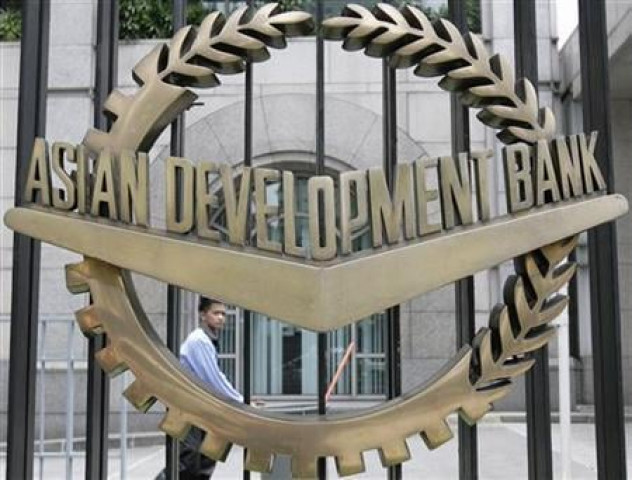ADB approves $1.3b loan for Pakistan
Budgetary support loan, crisis response facility to shore up foreign exchange reserves

Manila-based lender distances itself from govt's claim. PHOTO: REUTERS/FILE
It was for the first time in Pakistan’s history that any political or military government availed the crisis response facility to repay its foreign debt and build foreign currency reserves.
Unlike other long-term relatively cheaper ADB loans, the crisis response $1 billion debt has been taken for seven years at an interest rate of London-Interbank Offered Rate plus 2%, which will bring its total cost to around 4%.
In addition to that, the ADB also approved $300 million policy loan for the energy sector reforms. Compared to crisis loan facility, the $300 million energy sector reforms loan has been secured at 2% per annum interest rate that will be paid back in 20 years.
The ADB board of directors, which met in Manila, approved the $1 billion “in immediate budget support to Pakistan to shore up the country’s public finances and help strengthen a slowing economy”, according to an official handout of the lending agency.
The ADB will disburse the $1.3 billion next week, which will increase the official foreign currency reserves from its current level of $7.9 billion.
The lender has attached conditions of fiscal consolidation, strengthening of social safety nets, prudent debt management, a flexible exchange rate regime and comprehensive energy sector reforms in return for the $1-billion emergency lending, according to a concept clearance note of the emergency loan.
The crisis response facility is offered by the ADB as part of its international rescue efforts to help nations meet foreign payment obligations and build the reserves.
The PTI government on Wednesday told the National Assembly that it borrowed $10.4 billion from August 2018 to September 2019 to repay debt and build reserves. These include expensive foreign commercial loans worth $4.8 billion.
“The quick dispersing Special Policy-Based Loan is part of a comprehensive multi-door economic reform programme led by the International Monetary Fund (IMF) to stabilize Pakistan’s economy after a major deterioration in its fiscal and financial position in mid-2018 caused growth to slump and threatened progress in alleviating poverty,” said the ADB handout.
ADB Director General for Central and West Asia Werner Liepach said the ADB is committed to providing wide-ranging support to strengthen Pakistan’s economy and reduce risk of external economic shocks.
These funds will meet the government’s emergency financing needs to prevent significant adverse social and economic impacts and lay the foundations for a return to balanced growth, he added.
The ADB said Pakistan is still facing significant economic challenges on the back of a large balance of payments gap and critically low foreign exchange reserves together with weak and unbalanced growth.
The ADB’s statement was contrary to the economic victory that Prime Minister Imran Khan declared last week for the third time in about one year.
In July, the IMF approved a three-year $6 billion Extended Fund Facility (EFF) to finance the government’s economic reform programme that aims to put Pakistan’s economy on the path of sustainable and inclusive growth.
The ADB said the EFF is expected to catalyse at least $38 billion in financing from Pakistan’s development partners. The ADB has committed to provide a total of $2.1 billion in policy-based lending during fiscal year 2019–2020 to support the reform programme. So far, it has approved $1.8 billion.
Although the ADB’s budget support loans would help shore up the official reserves, the PTI government remains unable to get mobilized over $14 billion projects loans that were approved in past but could not be disbursed.
During his visit to Pakistan, the ADB’s vice president had also complained about delays in both approval of new projects and implementation on the approved schemes, which was keeping the committed money idle. Only in the energy sector, $2.1 billion loans remained undisbursed.
In return for the $300 million energy sector loan, Pakistan has assured the ADB to improve financial sustainability of the power sector, strengthen regulatory and institutional governance and reinforce energy infrastructure.
Under the circular debt reduction plan, the government has promised to improve collection of electricity bills from 94.7% in 2019 to 99.4% in 2022 and losses to improve from 17.1% in 2019 to 16.4% in 2022.
The other conditions of both these loans are increasing electricity tariffs and reducing subsidies and high cost of generation.


















COMMENTS
Comments are moderated and generally will be posted if they are on-topic and not abusive.
For more information, please see our Comments FAQ